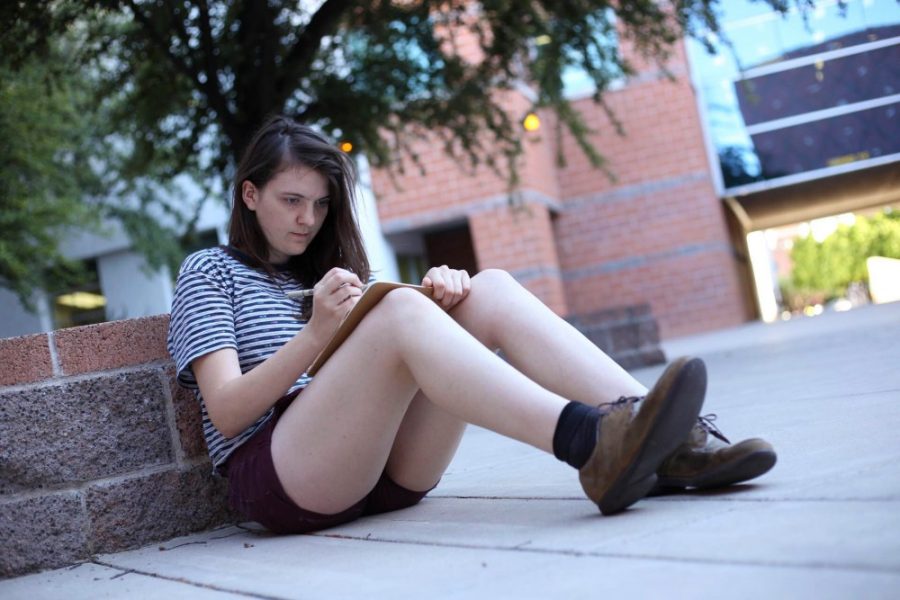Wells Fargo recently came under fire by artists all over the country over interesting ads they released promoting “Teen Day.” The ads, which were meant to reach out to teenagers who might have been interested in joining the bank and begin planning for their future, seemed to try to dissuade them from pursuing a career in the arts.
Well Fargo used examples which involved replacing one’s past time in ballet or acting with a new future in engineering or botany. The immediate backlash they got from professional actors, singers, dancers, painters, sculptors, musicians and other artists made me think about the many other instances of discrimination committed against artists and how often they go unnoticed.
There is an unspoken hierarchy in college. It’s not something you openly hear a lot, but it’s definitely something one can feel. As soon as you take your first college class, it’s clear that people believe that there are certain majors and minors that are greater, more important, more difficult and more useful than others.
RELATED: A world without art is just “eh.”
They place an extreme amount of emphasis on one particular field of study and seem to ignore the rest. The only time they refer to other majors/minors is to complain about how easy they must be. While studies like journalism, psychology, communications and cultural studies are often ignored, there is one area that people really disregard—the arts.
Every artist, at one point or another, has felt discriminated against over their choice of profession. Whether it is a raising of the eyebrows, a quick chuckle or a confused glance, we have all received odd reactions from others whenever we have mentioned our interest in an art-related field. Studying fine arts is looked at as a waste of money, a pathway with no future, a joke of an education.
People truly believe investing in an education in fine art is a waste of time and money. However, artists or students studying fine arts don’t understand what’s so funny or confusing, about wanting to pursue a creative, artistic career.
It seems like everyone’s in on a joke that we arrived too late to hear.
Art is not accepted because it is difficult to define, to classify, to deconstruct. Art cannot be constricted or perfectly defined. Thus, since it is not something that can be easily enclosed in a tight box, it is something we do not always see in a favorable light.
Art, in it’s different forms and styles, is difficult to understand for many, and what do we do with things we don’t understand? We make them seem odd, pointless and unnecessary.
We face discrimination from almost everyone. The general questions and complaints we hear daily have become engrained into our brains: “If you’re not a science major, you have no reason to be complaining about your workload,” “Why are you stressed, don’t you just sit around/move around a stage all day?” “What are you ever gonna do with that? Good luck finding a job.”
These are not questions faced by students in STEM fields.
Apparently, there is an unspoken rule that degrees are only worthwhile if they guarantee a job, not if you enjoy them or actually care about what you’re studying.
RELATED: Art history explores the artwork and people of the past
Why do we continue pursuing art? Why are there so many people dying to be able to express themselves artistically when most of the world thinks it’s a waste of time?
We do it because art cannot ever be avoided or ignored. We study art because by studying art we are studying human culture, human development and human relations. We live in a world that is fundamentally rooted in art, yet we fail to truly acknowledge the importance of the many artistic qualities of life that we live with today. These things include sports, religion, graduations, processions, parades, weddings and many more.
We go to concerts, obsess over movies, gawk over fashion shows. All of these activities have theatrical components, they are all presentational. Everything that surrounds us is a performance we ourselves, as humans, perform daily. We participate in artistic events all the time. Art is fundamental to culture. We live art.
Follow Julian Cardenas on Twitter.









